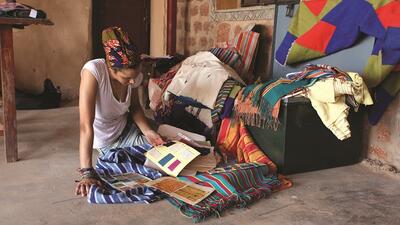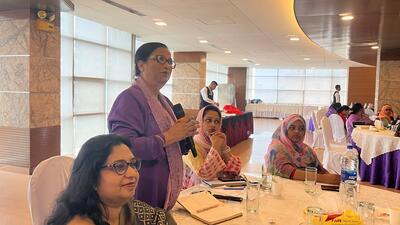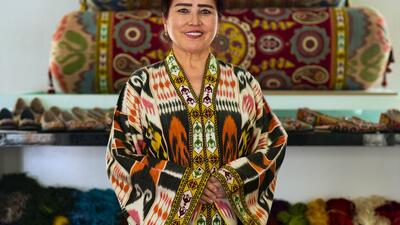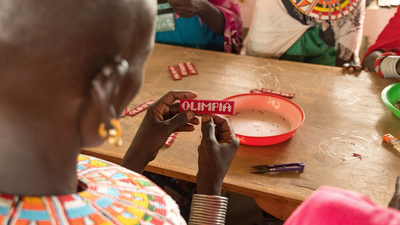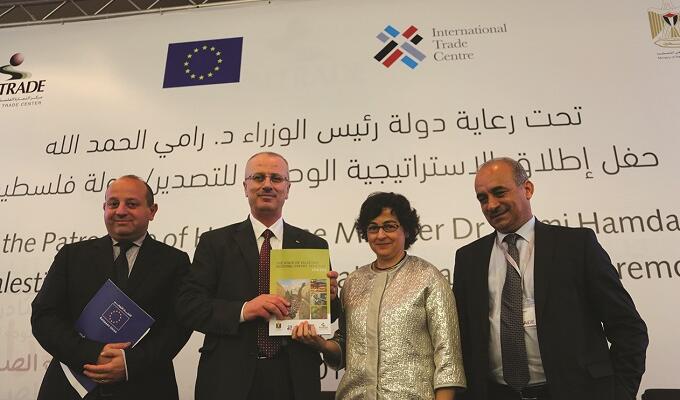
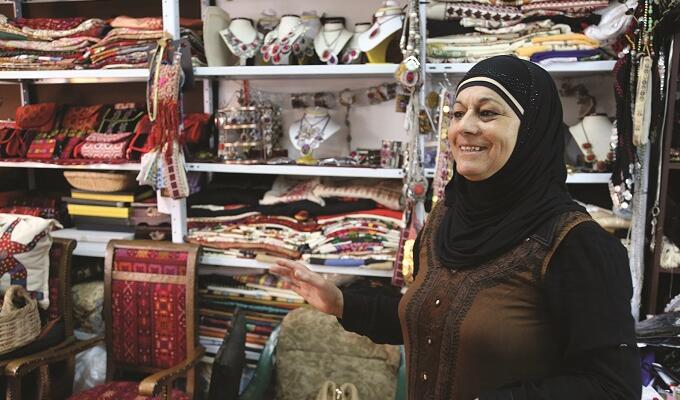
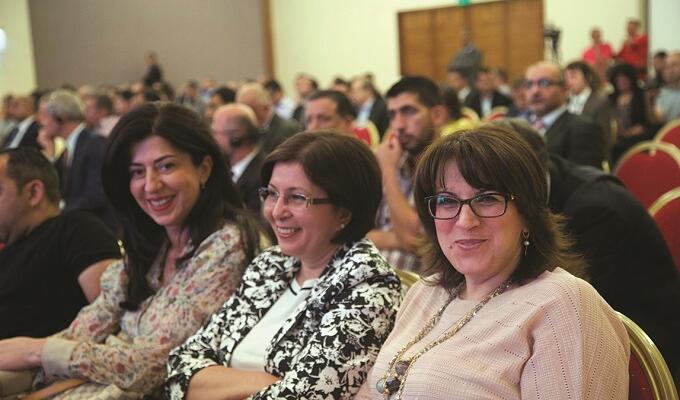
An export compass for Palestine
Rihab Daqaweieh was one of a group of women and businesswomen from the State of Palestine, Mongolia, Peru, Mongolia, India and Papua New Guinea whose collections were showcased at a fashion show at United Nations headquarters in New York in September 2014. For Daqaweieh – and her business – the event and the process leading up to it proved a turning point: she has more than doubled her exports since.
When Palestine’s first National Export Strategy (NES) was unveiled in Ramallah on 1 June, it was small and medium-sized business- owners like Daqaweieh the government had mind as it is they who hold the key to expanding Palestinian trade.
A five-year roadmap for increasing Palestinian exports, the NES – presented by Palestinian Prime Minister Rami Hamdallah, Palestine Trade Centre (PalTrade) Chairman Ibrahim Barham, International Trade Centre
(ITC) Executive Director Arancha González and European Union representative John Gatt-Rutter – seeks to drive socio-economic development and better integrate Palestine into the global economy. It sets out specific interventions to increase the competitiveness of nine key export sectors and subsectors. In addition, it provides guidance on improving the business environment to realize the vision articulated by the strategy’s authors: Export-led Prosperity, Made in Palestine.
‘This first Palestinian export strategy is the culmination of a national effort,’ said Hamdallah. ‘The implementation of the Palestinian export strategy is expected to lead to an overall growth in export sectors over the next five years by 67% with an annual growth rate of 13%. This will lead to enhanced Palestinian access to raw materials, a reduced trade deficit and reduced dependence on the Israeli market as the main destination for Palestinian exports.’
EXPANDING EXPORT RANGETo extend trade for new products and markets – and to boost employment generation – the strategy presents detailed action plans for the following priority sectors and subsectors: agro-processed meat; footwear and leather; fresh fruits, vegetables and herbs; furniture; information and communications technology (ICT); olive oil; stone and marble; textiles and garments; and tourism.
For the private sector to fully participate in this transformation of the Palestinian economy, the NES includes cross-sector strategies to address constraints in the business environment. In particular it highlights the need for better access to finance, improved quality management and trade information, and enhanced trade facilitation.
‘By launching this National Export Strategy, Palestinian businesses, policymakers and international partners now have a tool to better use trade as a platform for growth and place SME development at the heart of the future economic roadmap,’ said González of ITC. ‘The strategy identifies sectors, through which Palestine can strengthen its competitiveness, leading to greater economic independence and better livelihoods for the Palestinian people.’
The NES was formally endorsed by the Cabinet of the State of Palestine in September 2014. That decision also established the Palestinian Export Council (PEC), a public-private platform set up to manage and monitor the strategy’s implementation. Under the leadership of the Minister of National Economy and PalTrade, the PEC, in close collaboration with partners and donors, will ensure that actions identified in the NES are efficiently implemented.
State-building toolGatt-Rutter pointed out that the strategy sets out the framework for increasing Palestinian exports through the implementation of a detailed package of measures that must be applied by the Palestinian Authority across promising sectors
‘It is also a powerful political tool in the state-building process,’ he said. ‘The document identifies concrete targets and measures to establish a strong and independent economy as part of a viable and independent Palestinian state.’
Barham of PalTrade said: ‘The effective contribution of the NES to trade development will largely depend on the ability of the State of Palestine to plan, mobilize resources, coordinate projects, and monitor their implementation through a concerted effort of public and private stakeholders.’
The strategy was designed under the leadership of the Ministry of National Economy and the management of PalTrade, with technical assistance and guidance from ITC. The EU provided financial support for the design of the NES under its Trade Diversification and Competitiveness Enhancement Programme.
While Daqaweieh and other exporters in Palestine welcomed the new strategy, many of them have already set their sights on new opportunities abroad and at home. For Daqaweieh, a member of BusinessWomen Forum – Palestine, the United States of America has become the main export destination for her clothes, which mixes traditional Palestinian embroidery techniques with neat, modern design.
But equally important for Daqaweieh are the opportunities her exports create at home: she now employs 120 women around Ramallah, providing a much-needed income for their families. With Palestine’s National Export Strategy the hope is that more businesswomen and men will follow Daqaweieh’s lead and overcome barriers to export, thereby helping generate more jobs.





